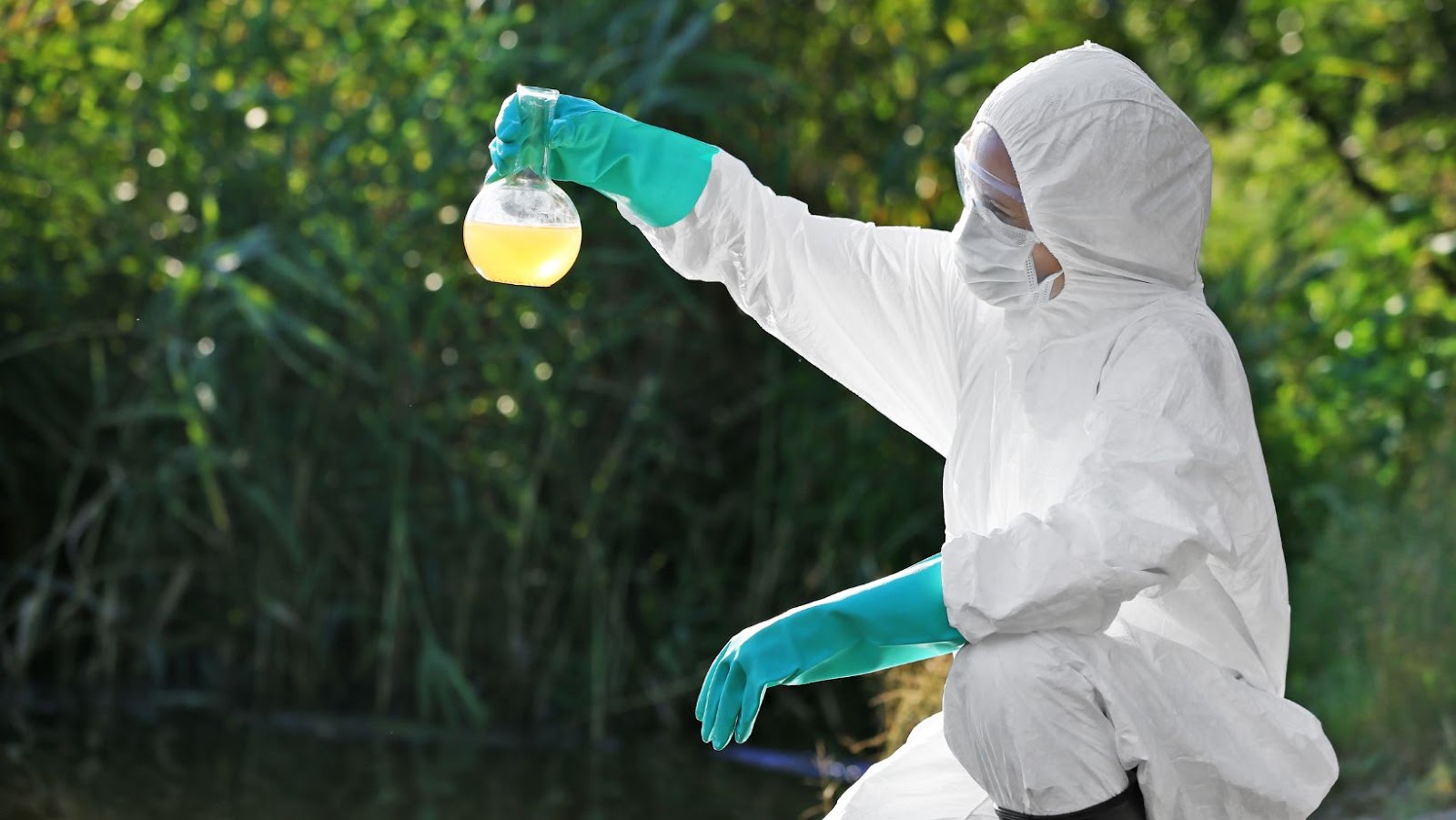TCE Found in the Drinking Water at Camp Lejeune

The water contamination crisis is one of the worst environmental disasters in recent history. Camp Lejeune is a military base in North Carolina that, from 1953 to 1987, was exposed to excessive levels of toxic chemicals that are believed to have caused widespread illnesses among the men and women who served there. The contaminated water affected hundreds of thousands of military members and their families. Of the contaminants found at Camp Lejeune, trichloroethylene (TCE) has been of particular concern.
What is TCE?
Trichloroethylene (TCE) is a colorless liquid found in the groundwater and soil at industrial sites and military bases like Camp Lejeune. It is a common solvent used in factories and businesses around the world for degreasing metal parts and cleaning machinery. It is also used as a degreaser by garages, repair shops, and auto body shops.
According to the Centers for Disease Control, exposure to TCE can occur through breathing in vapors or fumes and from skin contact with liquids. It is a carcinogen that can cause cancer in the kidney, liver, nasal cavity, and brain. It can also cause nausea, vomiting, dizziness, muscle weakness, headache, and difficulty breathing. Pregnant women and small children are the most vulnerable to the effects of TCE.

What does TCE Look Like?
TCE is a clear liquid with a sweet odor that can be soluble in water. It has several uses, including as a solvent and a paint stripper. It is also used to make other chemicals used in manufacturing plastics, pharmaceuticals, textiles, and dyes. In the air and water, it can turn into chloroform. It is also a mutagen, meaning it can mutate DNA to cause cancer and birth defects.
How does TCE Get Into the Water?
Trichloroethylene is often used as a solvent at industrial and commercial facilities such as automobile parts manufacturers, electronics factories, and dry cleaners. It can also get into groundwater as a result of spills. Groundwater contamination usually occurs when large amounts of TCE are released into the ground from a leaking tank or other release points. When released into the air, TCE can travel long distances through air and can eventually reach land, where it can harm plants and animals, and even people.
For example, small exposures to TCE can cause burning of the eyes, nose, and throat; abdominal pain; bloody diarrhea; problems with the kidneys and liver; headaches; dizziness; drowsiness; mental confusion; and loss of memory. Even small amounts of TCE can be harmful over time. There are no proven safe levels of exposure for humans.
What Can Victims of Camp Lejeune Water Contamination Do to Help Themselves Legally?
There are legal options available to victims of TCE found in the drinking water at Camp Lejeune. Hiring an experienced attorney is essential to achieving a successful outcome in your lawsuit. A personal injury law firm can help you protect your rights and ensure that you receive the full amount of compensation that you are due for your injuries and losses.

Researching potential law firms in your area will help you determine who will best represent your interests and fight for your legal rights. Look for a law firm with a history of successful verdicts and settlements for their clients. Reputable attorneys who care about their clients should be easy to talk to and responsive to your needs. Your attorney should be able to answer your questions clearly and give you information about the progress of your case every step of the way.
Many personal injury attorneys work on a contingency fee basis, meaning they do not get paid unless you do. This allows you to pursue a claim without having to worry about paying your attorney upfront. The fee arrangement is negotiated between you and your attorney at the beginning of the case. Compensation is typically a percentage of the settlement or verdict amount but may also include attorney’s fees and litigation costs. You should not have to make any payments out of pocket to pursue your claim unless you are awarded punitive damages by a jury.
These damages are awarded in addition to traditional compensatory damages and can be awarded as punishment for the defendant’s willful conduct in causing your injuries. Courts often order punitive damages to punish the defendant for their actions and discourage similar behavior in the future.
It is important to note that the costs of hiring an attorney are not reflected in your award, and you should not have to pay these fees out of your award unless they are approved by the court as part of your final settlement or verdict. An experienced attorney can help you navigate the legal process and help you receive the compensation you are owed for your injuries.




